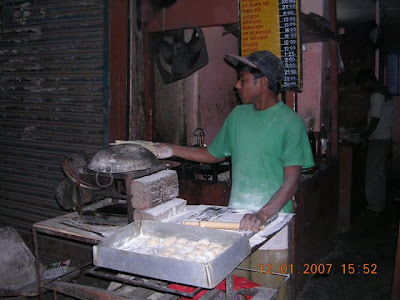Yes?
No?
I don’t know?
I don’t understand?
Communicating in Thailand can be frustrating.
Or for that matter, Cross-Cultural Communications!
A smile in Thailand can convey 4 different answers! This is part of an AIS GSM (largest telco in Thailand) banner ad found in NST Online 4 days ago.
How many times have we smiled and nodded our heads through a difficult to understand portion of a conversation, negotiations, consultations and discussions even though we do not understand or need clarifications! I suspect we learned this in the Asian classroom when we are much younger.
When a Smile is not a ‘Yes’!
When I first began to really work cross-culturally with Thais, I studied hard on my language. I started with a Learn Thai Language cassette tape for a year. Then I have a year of twice a week night classes in mid-90’s followed later by 4 months of one-to-one reading classes 6 times a week a few years later. My motivation was to communicate and to be communicated to accurately. AIS wants to bridge this gap through multi-lingual officers.
Does it make a difference by speaking in their tongue? Yes, they treat me as a serious player and one who have empathy towards them as a people. This is half the battle won. With that I heard from their heart more often in Thai and in English and this gives me understanding into their psyche.
When we have a deal I whooped in joy. In rejection and ambiguity, I do not get frustrated too much. I saw the rejection, the lack of confidence and even their mistrust in me coming much earlier. I was ready mentally and emotionally.
Cross cultural communication is difficult. I have talked with a frustrated and aggrieved businessman who got so worked up with a certain nationality from a bad business deal that he called them ‘conniving thieves’ and ‘b…..ds’.
There are joy of victories and also agonies in defeats. I have tried negotiating with a Laotian on a simple project using a combination of Thai and English. It took me about 10 hours spread over three meetings and over two days. We met again to follow-up. I fulfill my part. But then silence greets me. The deal failed to materialize.
Similarly many professionals who have to deal with cross-cultural communications have to work really hard to succeed. Oh yes on the plus side, I have made good and trusting friendships in work and play, some enduring up to today.
North Indians, Pakistanis, Bangladeshis use, “Acha! Acha!” with a smile and/or gentle swaying of their heads. It is so like our Malaysian way of nodding our heads, smiling and saying, 'OK', 'OK'. To many this means yes, I understand. Do not get the wrong message. It could convey, the affirmative ‘Yes’, the in-between ‘OK’ to an ambiguous, non-committal ‘I see’. It all depends on the context and non-verbal component. I have been to these areas and find it bewildering until I realized that there are other words to communicate a strong cannot be contested later ‘Yes’ or ‘No’.
In Malaysia I try to read the non-verbal signals even when I received a ‘Yes’ answer. A ‘Yes’ can sometimes mean ‘I see?’ and ‘I will think about it.” That is a reason why today many do not rely on the term “I give my word” anymore but usually follow-up the verbal agreement with a written black and white contract.
Some blame the failure, breakdown or worse the non-fulfilling of part of the agreement on integrity and honesty. This is unfair as it stereotypes without seeking to empathize. To me cross-cultural differences looms big in any breakdown of an agreement.
That is why, AIS is having staff that speaks in 5 different languages when you are mobile auto-roaming in Thailand. In this way, you don’t need a smile. You get a ‘Yes’ for a yes and a ‘No’ for a no. No misinterpretation.


















































